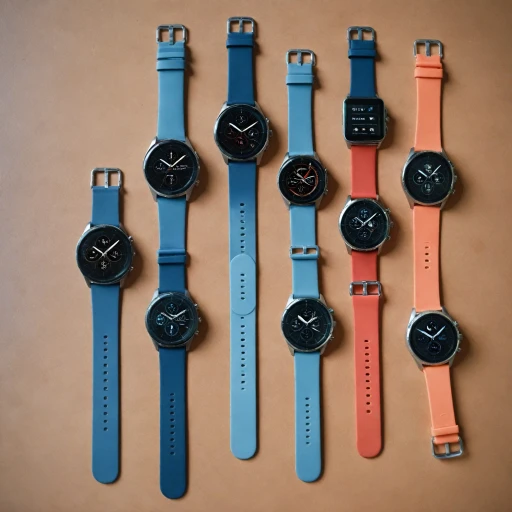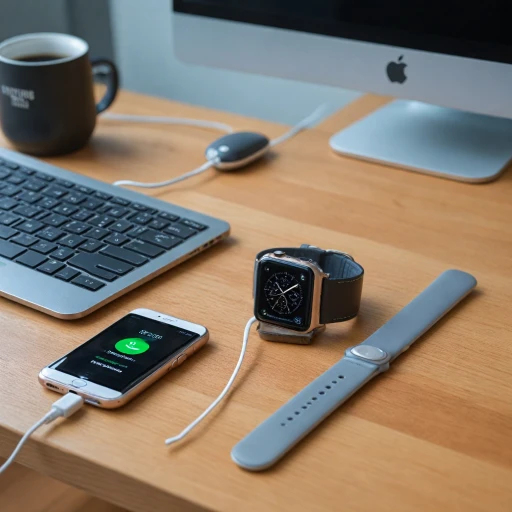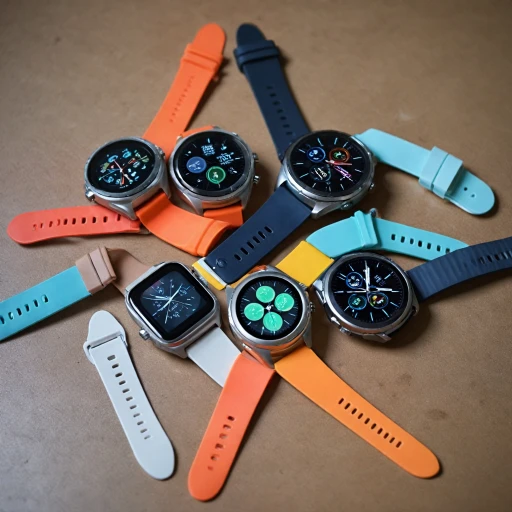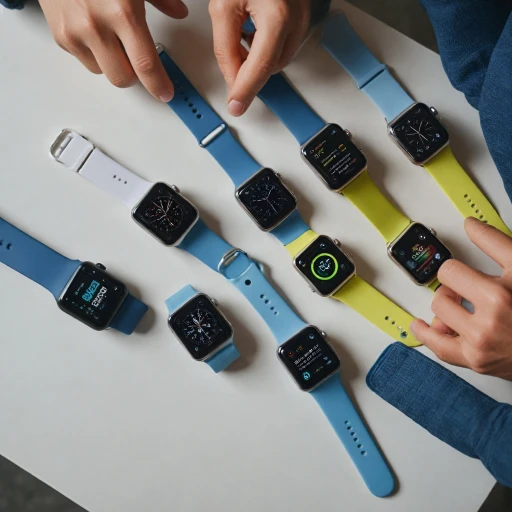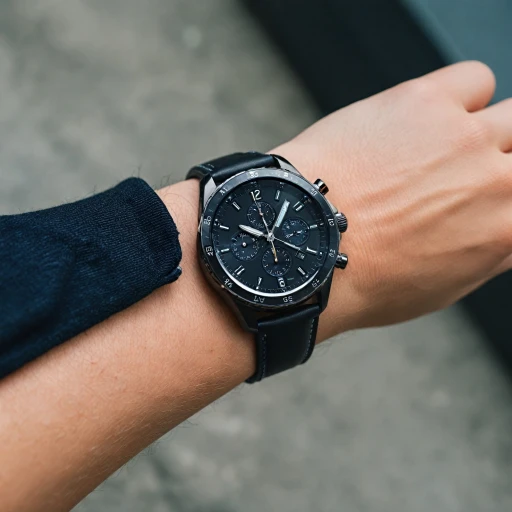
Understanding the Basics of Activity Trackers
Introduction to Activity Trackers
Activity trackers have become an essential part of modern fitness routines by offering insights into your physical health. These devices, often found in smart watches or smart rings, allow users to keep tabs on various health metrics. They often measure steps taken, heart rate, calories burned, and even sleep patterns. One of the most integral elements is heart rate tracking. With advances in technology, trackers can now measure how your heart responds during workouts, strength training, or even daily activities. This information empowers you to tailor your fitness regime for better results and efficiency. The battery life of an activity tracker is a critical consideration. Devices like the Garmin and Fitbit offer varying durations, so finding one that matches your lifestyle is pivotal. The Oura Ring, for example, prioritizes battery life while maintaining detailed tracking capabilities. For those who favor well-rounded health insights, fitness trackers today can even monitor blood oxygen levels. This feature is pivotal not just for fitness enthusiasts but also for individuals focused on optimizing overall health fitness. Smart watches such as the Apple Watch and Samsung Galaxy Watch boast robust data management. They seamlessly sync data with your preferred health and fitness apps, offering a holistic view of your activity and progress. If you're aiming to enhance your fitness journey with an activity tracker, exploring the different options available can point you in the right direction. In navigation through the world of activity trackers, it's important to focus on how they fit within your personal lifestyle and fitness goals. Moving forward, we'll delve into the key features of activity trackers, providing a comprehensive guide to choosing the best tracker for your specific needs. Whether you're looking for a dedicated fitness tracker or a multi-functional smart ring, understanding the basics is the first step to making an informed decision.Key Features to Look for in an Activity Tracker
Identifying Essential Features in a Fitness Tracker
Finding the best fitness tracker involves understanding the key features that align with your personal health and fitness goals. This not only helps to monitor your activities effectively but also maximizes the benefits from such technology. When considering a fitness tracker, it is imperative to focus on the comprehensive tracking of physical activities. The ability to accurately count steps, monitor heart rate, and keep track of calorie expenditure is foundational for maintaining a fruitful fitness regime. Additionally, advanced features like sleep tracking and blood oxygen monitoring are crucial for a holistic approach to health fitness. These trackers provide insights into your sleep patterns and the oxygen saturation in your blood, paving the way for improved health management. For instance, some of the top contenders in the market, like the Apple Watch and the Garmin series, boast advanced health tracking capabilities including sleep and heart rate monitoring. Battery life is another critical consideration, especially for those on the go. Devices such as the Fitbit offer impressive battery longevity, ensuring your tracker remains functional throughout your daily activities. On the other hand, smart rings like the Oura Ring provide a stealthy, efficient alternative with robust health insight features. Moreover, compatibility with health apps can significantly enhance the user experience and data management. This means a seamless connection with your smartphone to provide real-time updates and data analysis. The ability to analyze this data effectively enables users to tailor fitness programs and lifestyle choices to their personal needs, potentially preventing health-related issues in the future. For those invested in strength training, features that can assist with measuring muscle mass or workout intensity are worth considering. Samsung Galaxy’s recent models and Fitbit’s advanced trackers provide additional metrics oriented towards strength and cardiovascular training. To navigate all these features effectively and choose the best fitness tracker for your lifestyle, it is also beneficial to explore the role of diabetic watches in health management. Click here to learn about the benefits of diabetic watches for health management. These specialized devices offer an additional layer of biometric tracking and health analysis, crucial for individuals managing specific health conditions. Incorporating these essential features into your decision-making process forms the basis of selecting a suitable tracker tailored to your lifestyle and fitness journey.Comparing Popular Activity Trackers on the Market
Comparing Fitness Trackers: Finding What Works Best for You
Exploring the multitude of fitness trackers available, you'll find choices catering to diverse fitness goals and lifestyle needs. When comparing options, it's important to consider the specific features that best suit your activity tracking requirements. For those prioritizing heart rate and overall health tracking, the Apple Watch stands out as a leader with its robust array of health-focused features like blood oxygen monitoring and heart rate tracking. Its seamless integration with iOS devices and the comprehensive Apple Health app make it a preferred choice for many. On the other hand, the Fitbit lineup is renowned for its user-friendly interface and excellent sleep tracking capabilities. Fitness enthusiasts may appreciate Garmin's offerings, as these are tailored towards specific activities like strength training and cardio, providing detailed metrics and durability. Additionally, the emergence of smart rings, such as the Oura Ring, provides a discreet option for tracking various metrics with emphasis on sleep and recovery data. Although relatively new, smart rings offer a long battery life and valuable insights. The Samsung Galaxy Watch provides another versatile option, appealing to users who prefer an Android-compatible device with strong fitness tracking features. Its integration with fitness apps and services enhances user experience substantially. Ultimately, selecting an activity tracker is about balancing the features that align with your personal fitness goals and lifestyle preferences. Evaluating battery life, ease of use, and compatibility with devices you already own can guide you towards the best fit. For more in-depth comparisons and insights on choosing the right wearables for your lifestyle, consider exploring this detailed guide to smartwatches.The Role of Smartwatch Technology in Activity Tracking
Smart Technology Elevating Activity Trackers
Smartwatches play a pivotal role in the world of activity tracking, seamlessly blending advanced technology with accessibility. Modern smartwatches are not just about telling time; they encapsulate a blend of health, fitness, and connectivity features. One of the significant advantages of incorporating smartwatch technology into activity trackers is the ability to monitor health metrics efficiently. These watches offer comprehensive heart rate monitoring, which provides insights into cardiovascular health and helps tailor fitness routines. Whether you're on a rigorous strength training regimen or simply tracking your daily step count, maintaining heart rate data can be instrumental in optimizing your workout intensity. Furthermore, the inclusion of sleep tracking capabilities in devices like the Apple Watch or Fitbit helps users understand their sleep patterns. Good quality sleep is essential for overall health and recovery, making this feature invaluable for those committed to a fitness journey. Smartwatches also support SpO2 or blood oxygen tracking, adding another layer of health insight. This data, paired with information from fitness trackers, such as the Garmin or Samsung Galaxy, helps users monitor their body's oxygen levels during physical activities, providing a comprehensive picture of health fitness. Battery life is another notable feature often evaluated in the best smartwatches. While smart devices like the Oura ring and Ultrahuman ring are known for their robust tracking capabilities, finding a device that balances features with long-lasting battery life can be crucial for uninterrupted health tracking. For those who prefer alternatives to traditional watches, smart rings and fitness trackers offer a minimalistic approach without sacrificing the essential tracking capabilities. They often come with powerful apps that analyze health data, providing actionable insights to enhance health and fitness. Incorporating smart technology into activity trackers significantly enriches the user experience. Whether you're shopping for the best fitness tracker that suits your lifestyle or considering upgrading to a smartwatch for more detailed insights, there's a variety of options that cater to your fitness tracking needs.Choosing the Right Activity Tracker for Your Lifestyle
Deciding on the Perfect Fit for Your Daily Routine
Choosing the right activity tracker that suits your lifestyle requires careful consideration of several factors that align with your personal health and fitness goals. With countless options available, knowing what to prioritize can be your guiding light. Firstly, consider your main priorities. If you are someone who is focused on enhancing your fitness regime, a robust fitness tracker from brands like Garmin or Fitbit, known for their advanced step counters, might be ideal. These trackers typically offer in-depth data on multiple fitness aspects, including heart rate monitoring and blood oxygen levels, perfect for dedicated athletes and those into strength training. For individuals interested in closely monitoring their overall health and wellness, the integration of sleep tracking features can be a crucial factor. Devices like the Oura Ring and Samsung Galaxy Watch provide excellent insights into sleep patterns, contributing significantly to your health fitness strategy. Additionally, the smart ring category, particularly the best smart rings with sleep tracking, are becoming increasingly popular among users for their seamless integration and comfort. Battery longevity is another essential aspect. Some users prefer devices with extensive battery life that require minimal charging, like the Ultrahuman Ring, whereas others may lean towards devices like the Apple Watch, which offer comprehensive app ecosystems despite needing more frequent charging. Your choice might also depend on the specific data you wish to track. If continuous heart rate tracking and dynamic health monitoring are essential, ensure that the fitness tracker you decide on excels in these areas. Products such as the Fitbit Charge series are famed for their accurate heart rate and activity tracking capabilities. Ultimately, the "best fitness tracker" for you is one that aligns with your personal lifestyle needs, whether you’re an outdoor enthusiast needing durable tracking solutions or a professional seeking a sleek, app-rich smart watch for everyday use. Consider how each feature impacts your routine and how a tracker can enhance your journey towards a healthier lifestyle.Future Trends in Activity Tracking Technology
Emerging Technologies in Activity Tracking
As we look to the future of activity tracking, several exciting technologies are on the horizon. These innovations promise to enhance the way we monitor our health and fitness, making trackers more efficient and user-friendly. One of the most anticipated advancements is the integration of more advanced sensors in fitness trackers and smartwatches. These sensors will provide more accurate data on heart rate, blood oxygen levels, and even glucose monitoring, which is a game-changer for those with specific health needs.
Smart Rings and Their Growing Popularity
Smart rings, such as the Oura Ring and the Ultrahuman Ring, are gaining traction as compact alternatives to traditional fitness trackers. These devices offer features like sleep tracking, heart rate monitoring, and step counting, all while maintaining a sleek, unobtrusive design. As technology advances, we can expect smart rings to offer even more comprehensive health data, potentially rivaling the capabilities of larger devices like the Apple Watch and Samsung Galaxy Watch.
Battery Life and Energy Efficiency
Battery life remains a crucial factor for users when choosing a fitness tracker. Future devices are expected to incorporate more energy-efficient components, extending battery life without compromising on functionality. This means users can enjoy continuous tracking without the frequent need for recharging, making these devices more convenient for everyday use.
Integration with Health Apps and Ecosystems
The seamless integration of fitness trackers with health apps and ecosystems is another trend to watch. As more devices become compatible with platforms like Apple Health and Google Fit, users will benefit from a more holistic view of their health data. This integration allows for personalized insights and recommendations, enhancing the overall user experience and helping individuals make informed decisions about their health and fitness.
Focus on Personalized Health and Fitness
Finally, the future of activity tracking will likely see a shift towards more personalized health and fitness solutions. With advancements in AI and machine learning, fitness trackers will be able to offer tailored advice and training plans based on individual data. This personalized approach will help users achieve their fitness goals more effectively, whether it's through strength training, improving sleep quality, or optimizing heart health.





